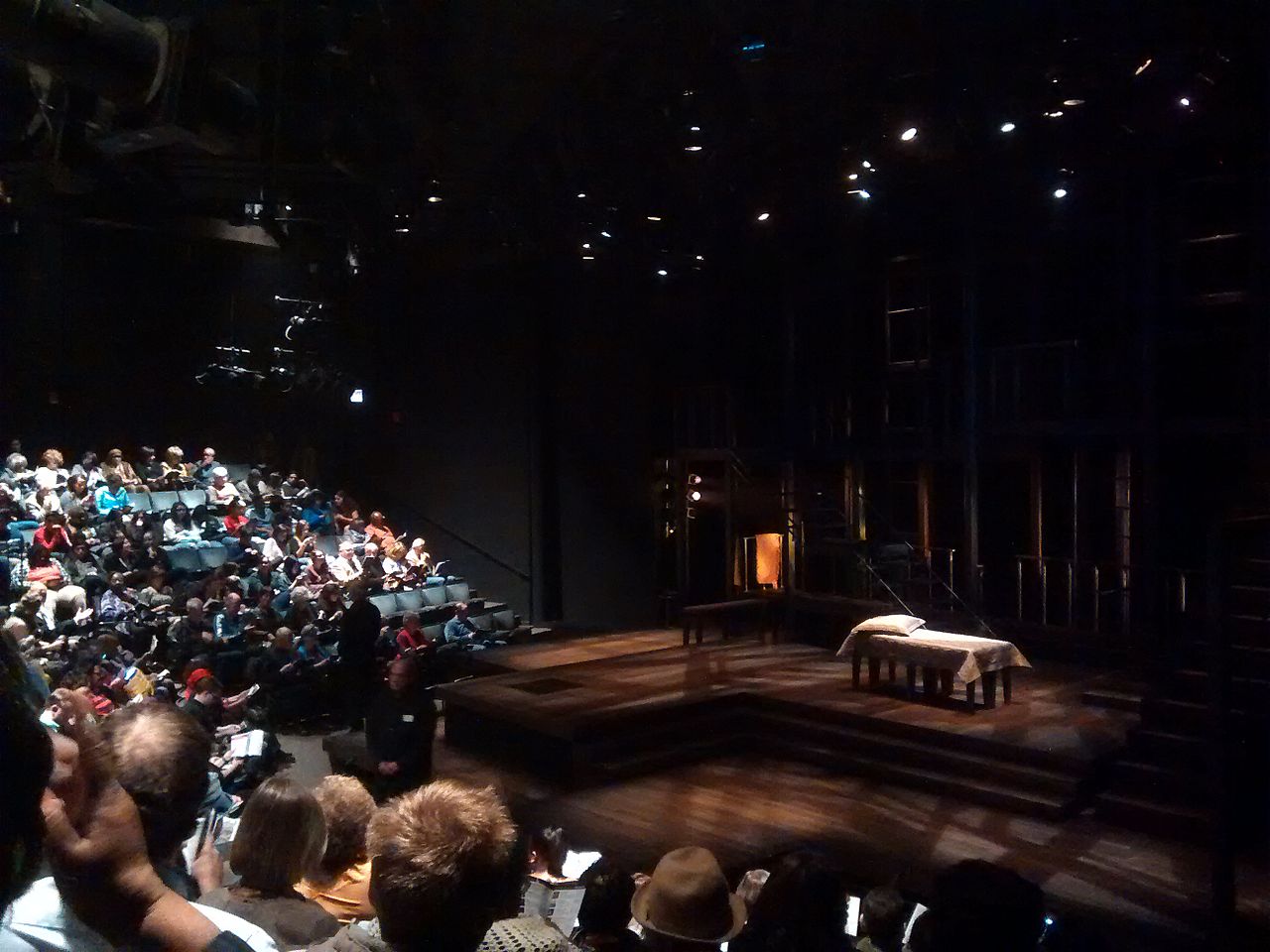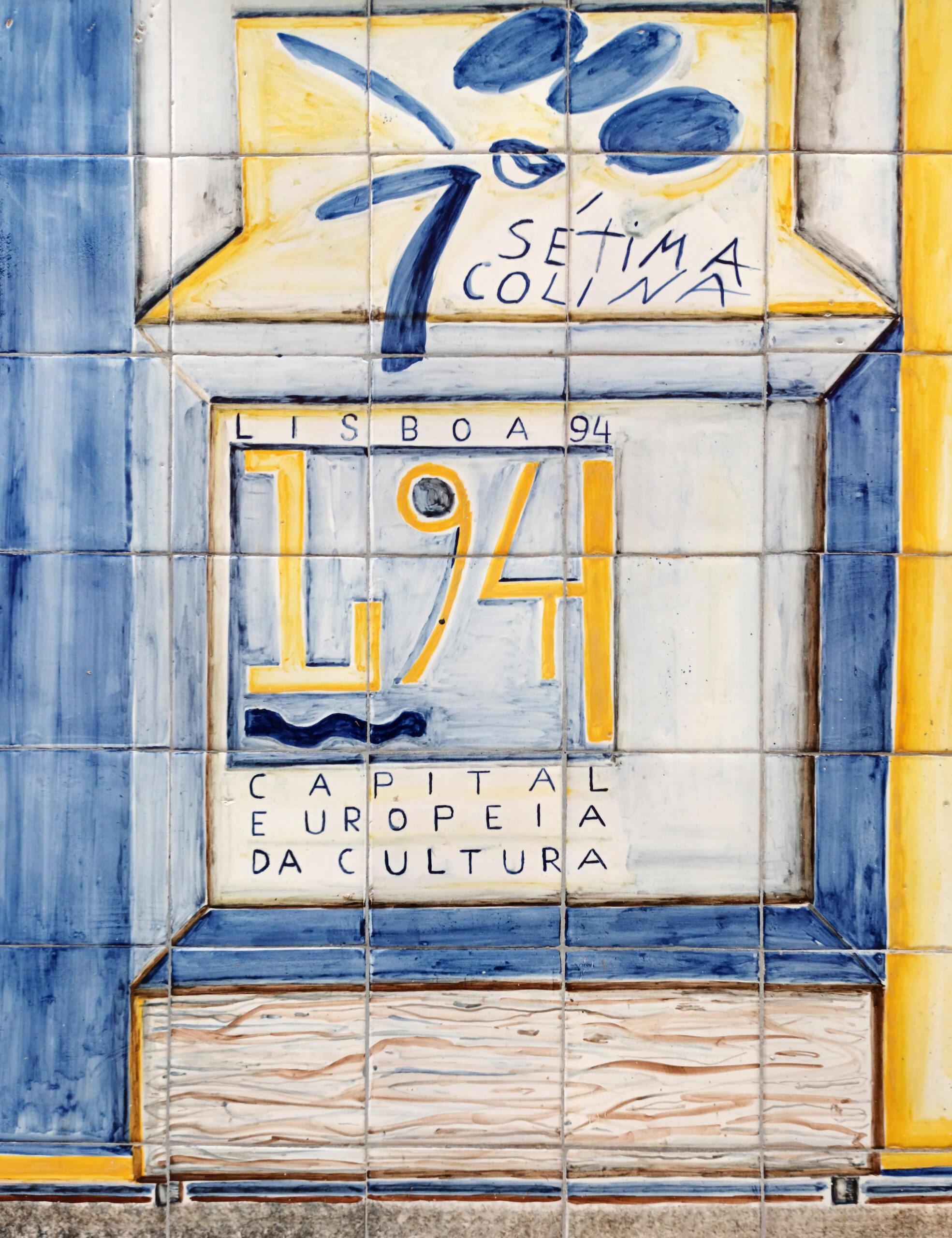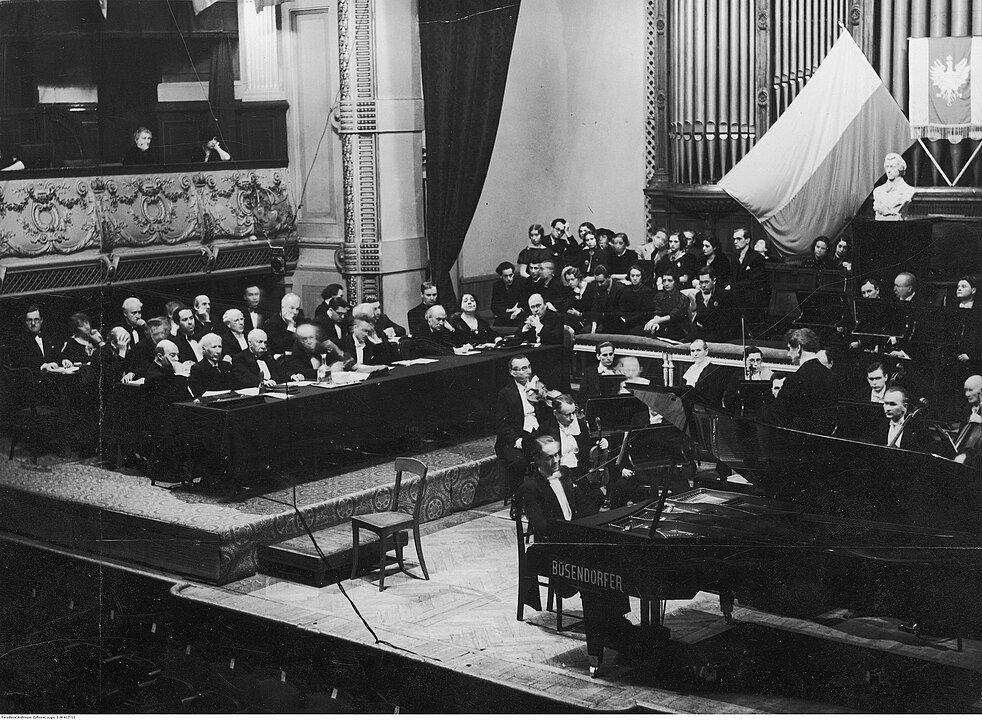The work of artists, creatives, cultural organisations and the cultural community that provides arts, culture and artistic education to society deserves due credit. It is not always easy to find the appropriate mechanisms to appraise and communicate in what ways this work impacts and benefits different groups, communities and society as whole.
In a radically changing world and against the background of the recent pandemic crisis, creative individuals, cultural organizations, and communities are facing a process of transition – a complex process that often includes detours, while requiring deliberate efforts of coordination and collaboration among many stakeholders that usually operate within different contexts. While engaging in such a process of change, artists, creative individuals and cultural organizations are striving to realize certain values. These values reflect their vision, mission, and suggest the impact that they intend to have. The pandemic crisis opened new opportunities to rethink purposes and values and to shape new ones.
In recent articles we use the analytical framework of the value-based approach (VBA) to address the articulation, realization, and assessment of values, and provide a practical application for further research and analysis to scholars and practitioners. VBA is an interdisciplinary, practice-based research method based on the philosophical assumption that values drive the pursuit of purposes latu sensu, and therefore trigger action aimed at realizing those purposes. Such a pursuit takes the form of one or more individual or collective practices.
The VBA has its theoretical roots in Arjo Klamer’s book, ‘Doing the Right Thing: A Value-Based Economy’ (2017). Values and their valorisation constitute the core of the analysis. Any (cultural) value is relative to its context and can be analyzed and assessed only through its concrete manifestations, namely the experiences (Dewey 1939, Hutter 2011) of different stakeholders. The relevant stakeholders who are either agents in the process of valorisation or otherwise have a stake in the valorisation (Klamer 2003, 2017), are operating in these different contexts. To capture the importance of these values for different stakeholders, the VBA proposes three stages of value realization: (1) articulation of (shared) values, (2) realization of values through different strategies and by different stakeholders and (3) assessing the impact. The first two stages are culturally embedded and indispensable for the process of the change/transformation to take place; the third stage reflects the assessment of qualities.
An important part of the value-based approach is the quality evaluator, which is a method we developed to assess the degree to which the relevant values are being realized. Its application to different cases studies, e.g. Rotterdam Unlimited Festival and the Creative Communities (CC) funding programme of the Arts Council of Malta, proves that artists and cultural organizations pursue a combination of social and cultural impact within the local communities. Balancing between both set of values is important in their practices. They are doing this by sharing these values with different stakeholders. In the case of the RU Festivals, the organizer aims for the values of solidarity and artistic and social diversity, whereas the organizers of the CC programme wants to realize values such as well-being, artistic quality, inclusion, social cohesion and trust (Figure 1 a,b).
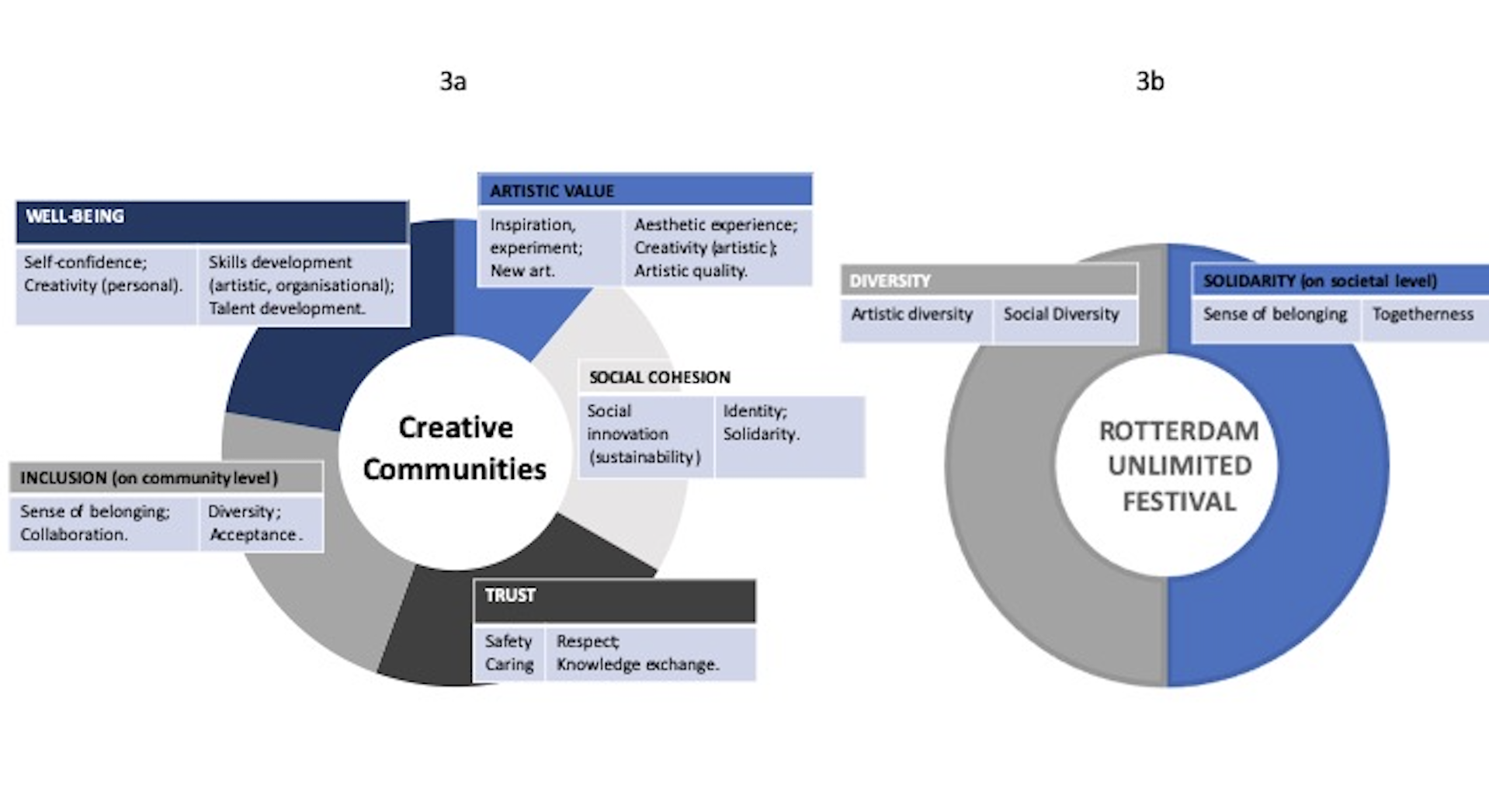
Figure 1(a,b) Articulation of social and cultural shared values.
After the articulation of the main values that the relevant stakeholders share, the next step is to consider the extent to which these values are realized through the activities undertaken, and whether values have changed or not. To identify the changes that occur as a consequence of the project, the evaluation focuses on the values and qualities that are previously identified.
The analysis of RU Festival indicates that this cultural activity has an impact on visitors and peers. For example, more than half the visitors consider the quality of interactions among people with different cultural backgrounds, from different generations and diverse social groups important for their visit, and visitors indicate that they experience this quality more than they expected (Figure 2). The biggest gap between the initial valuation and the actual experience, thus the greatest (positive) impact, occurs with respect to the quality of multicultural communication, followed by intergenerational communication and communication among diverse social groups.
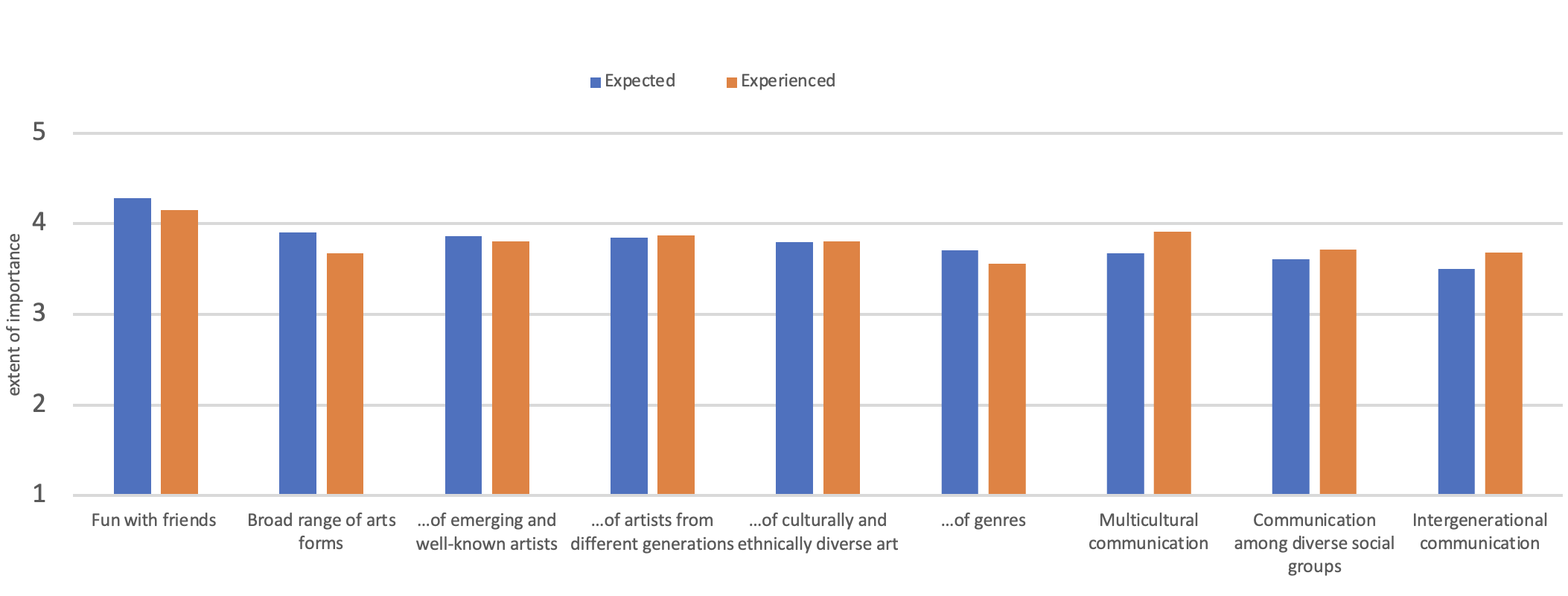
Figure 2. Rotterdam Unlimited social and cultural impact: visitors’ perspective by the extent of importance
A close look at the experience of beneficiaries of the CC programme reveals that for them the most important in their experience are the relational aspects such as collaboration, sense of belonging and mutual acceptance of the differences of the others, as well as some artistic/cultural aspects such as creativity, new knowledge/skills and improved artistic practices. They consider furthermore collaboration, gaining new knowledge and skills, and experiencing creativity and a sense of belonging as very important (Figure 3).
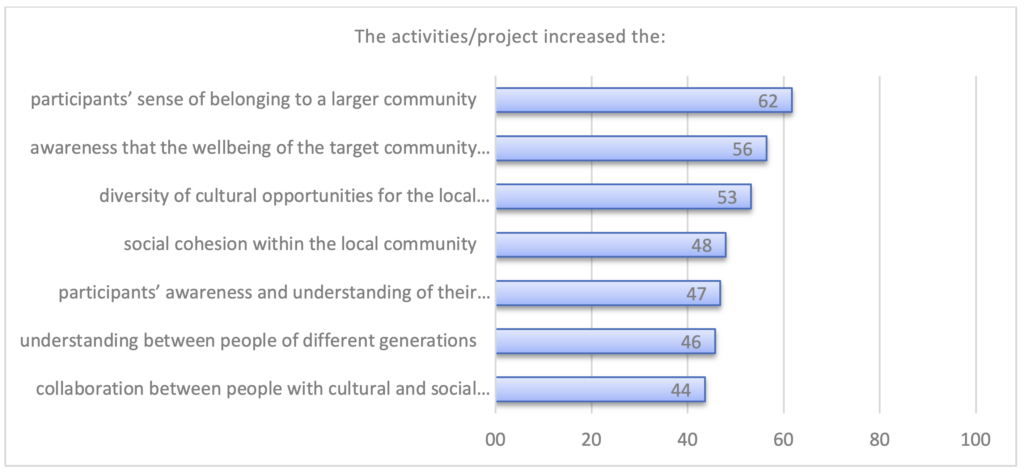
Figure 3. The perceived impact on beneficiaries of the ACM Creative Communities programme; overall percentages.
In both articles we argue that the application of the VBA stimulates the reflection upon and clear articulation of mission and purpose. The VBA is also a practical method of developing a realistic and technically well- grounded narrative of how the work of artists and cultural organizations are realizing impact by changing and/or creating cultural and social practices.
References:
Dewey, J. 1939. “Theory of Valuation.” International Encyclopedia of Unified Science II (4).
Gregory, D., R. Johnston, G. Pratt, M. Watts, et al. 2009. “Quality of Life”. Dictionary of Human Geography (5th ed.). Oxford: Wiley-Blackwell.
Hutter, M. 2011. “Experienced Goods.” In A Handbook of Cultural Economics, Second Edition, edited by R. Towse, 211–215. Cheltenham: Edward Elgar.
Klamer, A. 2003. “A Pragmatic View on Values in Economics.” Journal of Economic Methodology 10: 191–212. Abingdon: Routledge.
Klamer, A. 2017. Doing the Right Thing: A Value Based Economy. London: Ubiquity Press.
About these articles:
Petrova, L., S. Graça and A. Klamer. 2022. “Evaluating qualities of cultural production: a value-based approach”. Media Practice and Education. DOI: 10.1080/25741136.2022.2056793
Klamer, A., L. Petrova, and D. Kiss. 2022. “Cultural Value of a Festival: Quality Evaluator for Assessing Impact”. In Managing Cultural Festivals Between Tradition and Innovation, edited by E. Salvador and J. Pedersen, 206–228. Abingdon: Routledge. DOI: 10.4324/9781003127185-15
About the author
Lyudmila Petrova is a Senior Researcher in Cultural Economics at CREARE Social, the Netherlands
Arjo Klamer is Professor in Cultural Economics emeritus at the Erasmus University and is Visiting Professor of Humane Economy at the Vrije Universiteit, The Netherlands
Susana Graça is Adjunct Professor in Art and Production at Escola Superior de Teatro e Cinema – IPL and E Executive Board Member at EGEAC, Portugal
Dorottya Eva Kiss is a Lecturer and Course Coordinator in Cultural, Social & Communication Sciences at the Erasmus University, the Netherlands
